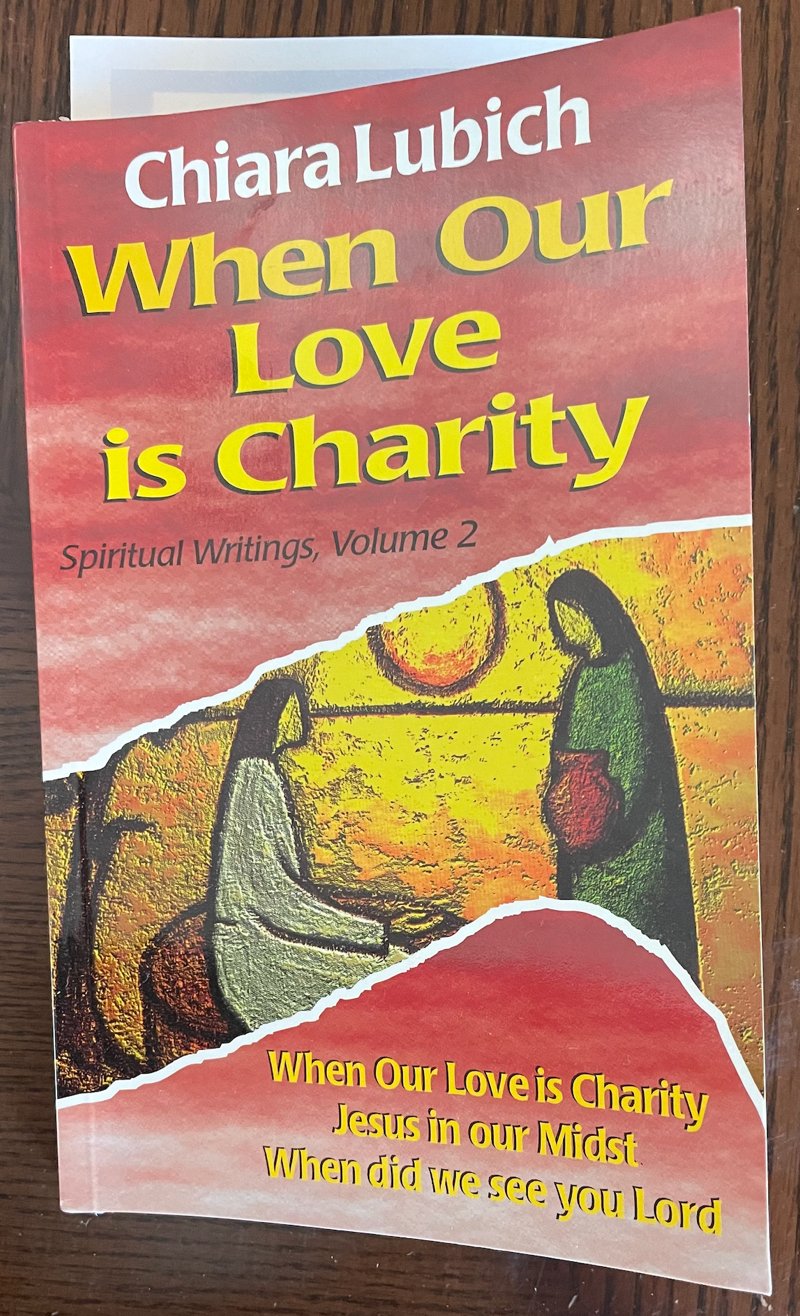When Our Love is Charity
Two of the Wittenberg 2017 gatherings (2012 in Ottmaring & 2014 in Trento) were beautifully hosted by a mostly-Catholic community called the Focolare. The Focolare was founded in Italy in the early 1940s. The founder was Chiara Lubich.
I had heard her name often, and have long wanted to read some of her writings - and partly because the Italian name Chiara corresponds to the English name Clara. So on my current trip to Turkey with my daughter Clara, I took along one of her books, published by New City Press - the publishing arm of the Focolare.
When Our Love is Charity is an explanation of one of - if not the - primary values of the Focolare community: charity. Of course, charity corresponds to love, but Chiara Lubich expounds in more detail on how to live out love in community and as a community, so it corresponds to the charity that St. Paul describes as “the greatest gift” in 1 Cor. 13.
Her writings should be of great interest to us at Christ the Reconciler, as we are being led by the Holy Spirit in the founding of our own community. Of course our emphasis on Living Out John 17 is different than the emphasis of the Focolare on Charity - but there are many overlaps as well. For example, in describing how charity leads to unity, Chiara writes:
The love God wants us to have for one another is unity in distinction. In fact, Jesus could have said “Where two or three are united in my name, I will fuse them.” but he didn’t say that. Instead he said, “I will be in the midst of them” (Mt 18:20). This means unity and distinction. Creatures are finite and cannot penetrate each other, but God can penetrate each.
One area that Chiara goes into in depth, that we have also been talking about, is the impact of charity on material goods. The Focolare do not have a full communion of goods, like the Bruderhof, yet Chiara seems to want them to be drawn in that direction. At the same time, she recognizes the practical necessity of maintaining private ownership in a community that has a variety of different “levels” of membership, from loosely-associated Volunteers to Youth, Priests, Focolarini, and the fully-devoted Focolare.
One area where I wanted to understand more, was how the Focolare relate to non-Christians. They have a history of dialogue with those from other religions, which is not something that the Holy Spirit has led us to focus on. Chiara Lubich encourages her community to walk the fine line of grace to the world and truth to the gospel:
… as they feel understood, people will desire to know what kind of love carried us to them. They will discover that it does not come from us but from God, and they will recognize the true God through our witness.
We have much to learn from those who have gone before us in the pursuit of unity in community. The Focolare are among them. I encourage you to pick up one or more of Chiara Lubich’s prolific writings, to see how they live out the love of Christ in their community.

